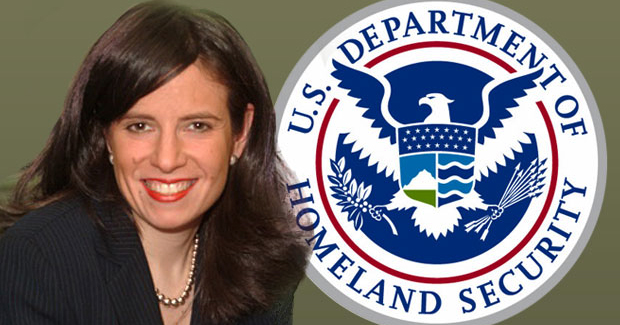 |
UMBC CMSC 491/691 (07) Fall 2018 |
|

CHMPR Distinguished Lecturers Series
The Need for Speed
Dr. Phyllis A. Schneck
Deputy Under Secretary of Cybersecurity Department of Homeland Security
3:30pm Thursday, 1 December 2016, UC 310, UMBC 3:00pm Coffee, tea, and cookies
As computers get faster, they change the world. Processors get smaller, the number of devices with processors gets bigger, and the amount of information that can be produced and transported grows exponentially. Everything on the planet, unless one can eat it, is likely to have electronic logic within - and, most recently, to be connected to other devices. Our way of life and critical infrastructures, from power and water to finance is enabled by this ability to process light, and transport information at that speed. The speed of computing is enabling new conveniences and capabilities, and furthering science in directions never before imagined from DNA studies to particle physics. This amazingly connected world, however, introduces new vulnerabilities as many connected devices were not designed to be safe from unauthorized access and use. We must pay special attention to protecting infrastructure components such as information and the intricate signaling systems that generate and distribute electricity. This requires specialized algorithms to mine the masses of data to recognize normal internet activity from potential threat indicators. The goal is to create a more self-healing network, accomplishing with information what nature does with biological responses - creating an electronic immune system. Cognitive computing can provide groundbreaking results in data mining and analysis that will enhance the Cybersecurity to protect the other applications such as genomic and physics research. Software and hardware developers need to work together to create the algorithms and custom hardware to minimize heat, maximize computation and, finally, create a secure design. We can use the speed of computing to enhance Cybersecurity as well - thus the paradox of the need for speed to protect itself. Dr. Phyllis Schneck is the Deputy Under Secretary for Cybersecurity & Communications with the Department of Homeland Security, where she is also the Chief Cybersecurity Official. Previously held positions include Chief Technology Officer for Global Public Sector, McAfee, Inc.; VP of Enterprise Services, eCommSecurity; and VP of Corporate Strategy for SecureWorks, Inc. Schneck earned her Ph.D. in computer science from Georgia Tech and pioneered the field of info security and security-based high-performance computing at Georgia Tech. She holds seven information security patents and has six research publications in the areas of info security, real-time systems, telecom and software engineering. If you plan on attending, please RSVP to Michelle Bobovych at bobovych@umbc.edu to ensure we have a sufficient number of chairs.